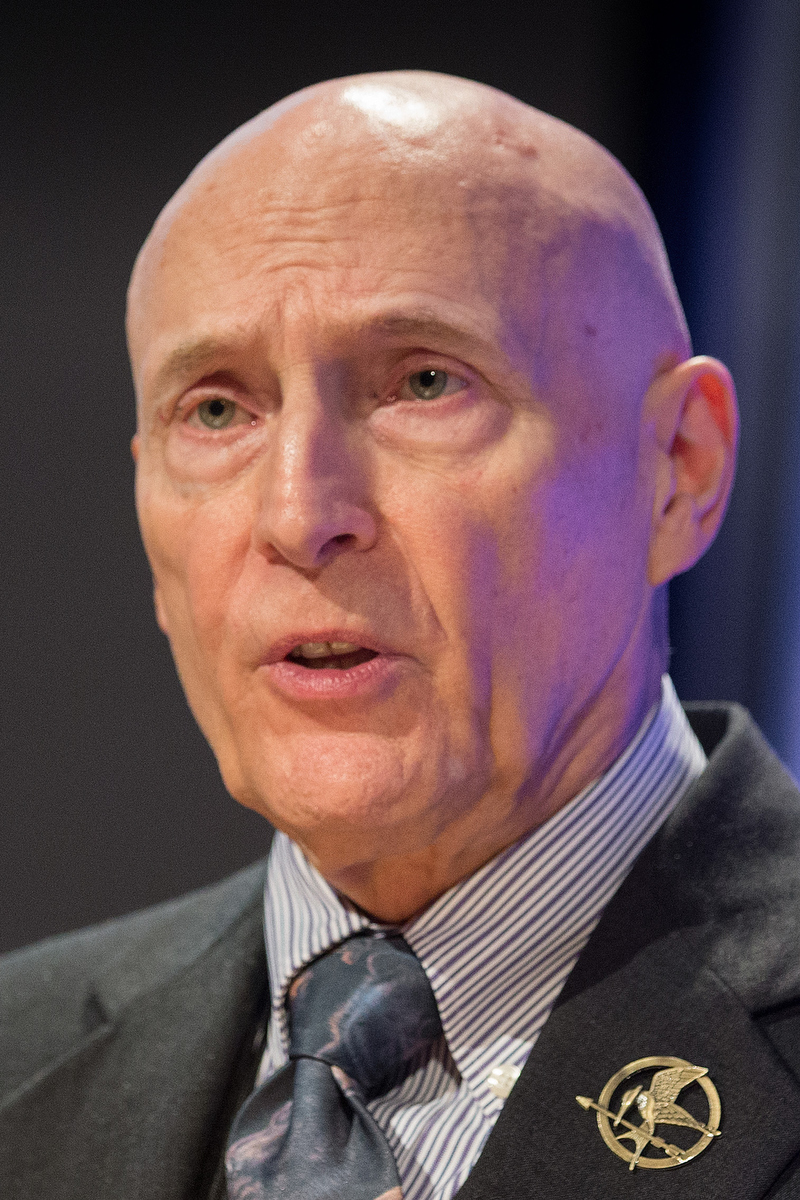
Photo courtesy of Kelly Marciales.
If a plan for separating The United Methodist Church passes during the 2021 General Conference, there is more to consider than name changes and separation.
The passage of the “Protocol of Reconciliation & Grace Through Separation,” would mean more than names changes and the creation of different denominations from the current church. That plan would preserve The United Methodist Church with regional bodies and flexibility on some church policies, while allowing traditionalist-minded congregations to form a new denomination. There could also be a progressive denomination.
We’ll need to restructure, reform and renew the post-separation United Methodist Church by reshaping the connectional structure of the denomination.
The general agencies of the church are currently unsustainable, and we must develop a sustainable framework that enhances the church’s mission.

Photo by Mike DuBose, UM News.
General Conference 2016, the church’s policymaking body, adopted a budget that proposed spending $347.6 million, the sum of the World Service and General Administration Funds, during the last quadrennium to fund the agencies supported by apportionments. The General Administration Fund also supports General Conference itself — the second largest line item after the finance agency.
Commentaries
The United Methodist agencies funded under this budget are: The boards of Church and Society, Global Ministries, Higher Education and Ministry, Discipleship Ministries and United Methodist Communications; the commissions on Religion and Race, the Status and Role of Women, Archives and History, United Methodist Men; as well as the General Council on Finance and Administration and the Connectional Table.
This structure is not sustainable. The two agencies charged with proposing the quadrennial budget to General Conference, the Connectional Table and the finance agency, have already announced that they will be proposing the most drastic reductions in the history of the church.
The agency targeted for the biggest reduction is United Methodist Communications. Preliminarily the budget included a UMCom reduction of 35% for 2021-2024, but because of a proposed lower collection rate of 50%, the effective cut is substantially more with a net impact of 64% reduction using GCFA forecasts. No organization can sustain such reductions, not without change of such magnitude as to require restructuring to carry out its mission with fewer staff and reduced program expenses.
Each agency was created to provide a ministry in fulfillment of a mission, but we don’t always create a new agency to fulfill a connectional purpose. The United Methodist Committee on Relief and the Advance for Christ are not separate agencies, but critical parts of the mission and disaster relief work of Global Ministries. We can we use these examples to shape the agencies going forward.
By applying a new framework for collaboration that does not insist on the creation of new agencies or the perpetuation of existing agencies, the post-separation United Methodist Church can continue to fulfill its mission without unnecessary structures that involve personnel and real estate.
The challenge is to preserve critical ministries without feeling beholden to untenable, antiquated structures. We currently have three different revenue models for agencies: fee-based, hybrid and apportionment-based.
The fee-based model functions without apportionment funding. These agencies are Wespath, the pension agency, as well as the United Methodist Publishing House and United Methodist Women. They have always functioned either on a fee-for-service basis — Wespath and the publishing house — or through generous direct contributions of members — United Methodist Women. All of these should be separate corporations.
The hybrid model agency — the General Council on Finance and Administration — functions on a fee-for-service basis and through apportionments. The finance agency should adopt the fee-based model that sustains the publishing house, United Methodist Women and the pension agency. Functioning on a fee-for-service basis, each organization would be poised to serve the separating churches, the post-separation United Methodist Church and others as it can attract them.
The challenging category consists of those whose budgets are apportionment-based, which includes the remaining agencies. These would be unlikely to survive if converted to fee-for-service. These agencies provide critical ministries, but their structures are ripe for reconfiguration.
Reconfiguration means consolidation and reduction as the path to restructure, reform and renewal. The Connectional Table is the one coordinating body. There are four program boards: Church and Society, Discipleship Ministries, Higher Education and Ministry and Global Ministries. There are five commissions: Religion and Race, Status and Role of Women, United Methodist Men, United Methodist Communications and Archives and History.
We see the agencies as ripe for consolidation and in fact, four program agencies may be unsustainable. One option would be to merge Global Ministries with Church and Society.
Reconfiguration should be approached in stages. The first stage is the consolidation of the five commissions’ ministries into other agencies.
The missions given to UMCom and Archives and History are administrative and should be assigned to the finance agency and funded on a fee-for-service basis.
The missions of Religion and Race and Status and Role of Women, while unique in scope, are similar as both are charged with the inclusiveness of the church. This is arguably a matter of concern for how the church interacts with society and how the church conducts its own business. These two commissions should become missional arms of the United Methodist Board of Church and Society. The post-separation denomination will have a renewed urgency for integrated practices of inclusivity, equity and justice as part of its nature, and the Board of Church and Society ought to be fully empowered to carry out this mission.
United Methodist Men was established as an independent agency by extracting it from Discipleship Ministries. It was intended, like United Methodist Women, to function without reliance on apportionments, instead being funded through annual membership fees and contributions from individual members. However, it continues as partly apportionment funded commission and that must change in the post-separation church. The men’s group must be established as a membership corporation.
The church can establish a structure that will optimally serve it for connectional ministry and mission, doing together those things we do not do well separately. The alternative to a reasoned and deliberate approach to agency consolidation and reduction is to allow the lack of funding to take over and do it for us.
Funding can be used as a substitute for making deliberate structural decisions based on considerations of mission and ministry. There are three ways that it could happen in the lead-up to General Conference. The Connectional Table and the finance agency have already decided to make the most dramatic reduction ever. They rejected proposing the same proportionate reduction for each agency funded by apportionments and decided that the bulk of the reduction would fall on United Methodist Communications, a high share on the larger program boards and almost none on the rest of the commissions.
The second method — rejected by the Connectional Table and the finance agency at this time— is to reduce each agency by the same percentage. In this method, monies are distributed as they've always been distributed without regard to where those funds will have the most impact in mission and ministry.
A third method is to make decisions during budgeting about where the money can do the most good. This is the most challenging way to use funding for restructure: It's also the least used because it’s during budgeting that the constituencies of each of the agencies who receive funding have the most influence.
The most pernicious thing to do is what we've been doing. We can ignore the problem and propose and adopt a budget that has no hope of being funded by the local churches. In that case, the churches will make the reductions by not paying apportionments, resulting in a version of the second method of cutting everything proportionately.
Under that method, the church withers away without plan or intentionality.
Kelly Marciales and Lonnie Brooks are both reserve delegates to the 2021 General Conference. Marciales is a United Methodist deaconess and community organizer and a member of First United Methodist Church in Wasilla, Alaska. Brooks has served as a lay delegate or reserve delegate to all except one General Conference since 2000. He is a member of St. John United Methodist Church of Anchorage and has served on four general church agencies and committees.Like what you're reading? Support the ministry of UM News! Your support ensures the latest denominational news, dynamic stories and informative articles will continue to connect our global community. Make a tax-deductible donation at ResourceUMC.org/GiveUMCom.


